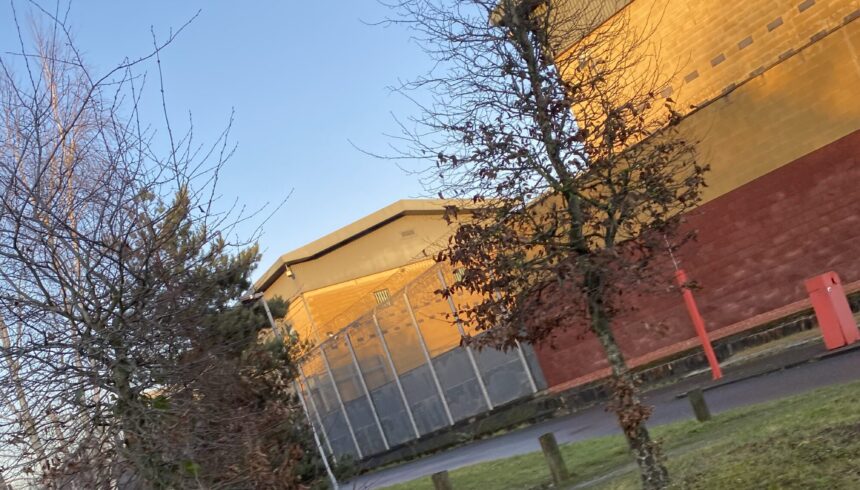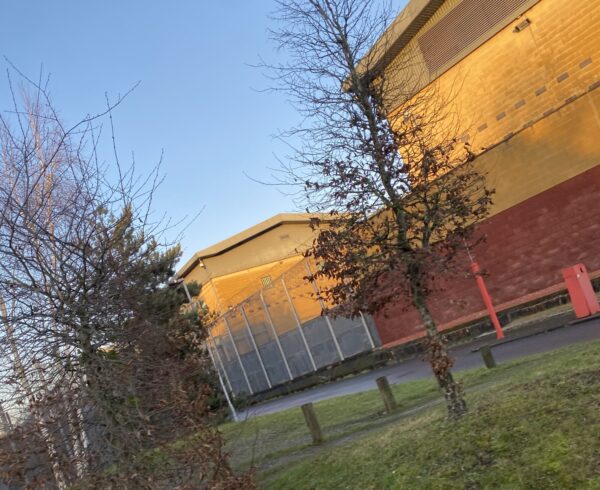Accessing legal advice in detention: becoming an impossibility
JRS UK’s new report shows that is extraordinarily difficult it is for people in immigration detention to access legal advice. In our survey of people in Harmondsworth, only 38% of participants had legal representation at all. Amid a wider crisis of non-availability of asylum and immigration legal aid, The Detained Duty Advice Scheme (DDAS) – the system that is supposed to facilitate access to legal advice for people in detention - is badly broken.
This report builds closely on our work with people in detention. Through supporting people in Harmondsworth and Colnbrook IRCs, JRS UK has observed over several years that people have greater and greater difficulty in accessing even one-off legal advice, and even more so legal representation, with the ongoing advice and support that entails. At the time of writing most people in detention simply do not have meaningful access to any legal advice at all. We have grown accustomed to encountering people who have sought asylum in the UK and had their claim processed and refused, without ever managing to speak with a legal advisor.

It is extraordinarily difficult effectively to access legal advice and representation in immigration detention, with the Detained Duty Advice Scheme (DDAS) that is supposed to facilitate access to legal advice being badly broken.
Key problems we found include:
- Many people cannot get a conversation with a lawyer at all – even though everyone in detention is entitled to an initial consultation. Many people sign up for an initial consultation with a legal advisor and they never hear from one
- When people do hear from a lawyer, the lawyer often refuses to take their case. Frequently, they say this is because they don’t have capacity to do it, or that they can’t or won’t take that kind of case – even if it is a very normal kind of case
- Even during the initial consultation, people often don’t receive meaningful advice they can understand. Many people don’t even know what happened during what was supposed to be their initial consultation. They often don’t know whether their case has been taken on, or the name of the advisor or firm they spoke with. This is made a lot worse because most consultations happen on the phone, not face to face and some lawyers don’t use interpreters even when they are absolutely essential.
- Legal advisors often only take on part of a case. It is especially common only to take on bail applications without addressing the substantive aspects of someone’s case, such as their asylum claim.
- Even where a lawyer takes on all of a case, advice is frequently of a poor quality.
- This all happens in the context that access to justice is already disproportionately difficult in detention, where communication is hampered, people facing profound struggles with mental health, and there are many process with the operation of immigration and asylum processes.
Impact
All of this has a hugely destructive impact on access to justice and, ultimately, on people’s lives. People in detention are navigating hugely complex immigration and asylum processes with profound, sometimes life or death, consequences, and they are doing so whilst locked up indefinitely in somewhere that looks and feels like a prison. Lack of legal advice in detention means people routinely miss appeal deadlines, are forced to spend extended periods in detention, and are at risk of being wrongly removed or deported from the UK. It puts people are at risk greater of being removed to a place they will be in danger, or torn from their families. This is not fair. It is not human. It’s not how we want to treat people. It needs to change.

“Daniel is a victim of trafficking who was criminally exploited and then faced deportation. He has a partner and young child in the UK. He desperately needed a lawyer to fight his deportation. He explains: “[After I signed up to the DDAS] I spoke to a guy once, he said he was going to take my case. I kept calling and never got through. I called 3 times a day. I was sometimes on hold for an hour plus. I never got through to him”.


